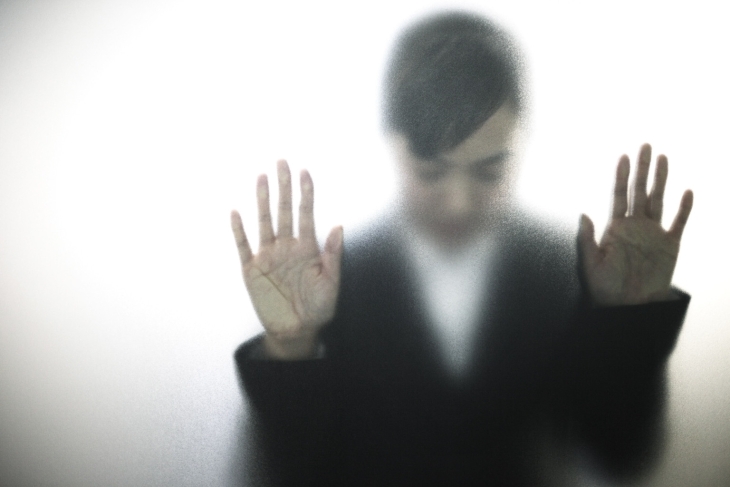
Recovery can be an emotional time. According to the National Institute on Drug Abuse, one of the first consequences of using drugs is an emotional change. It’s one of the key ways drugs impact your brain.
During both addiction and recovery you will undoubtedly experience a wide range of emotions. Most people experience some of the more common negative emotions, particularly when they are in withdrawal. Learning about the emotional stages of healing is an important part of the recovery process, as discussed in our Guide to treatment & recovery.
1. Anxiety
Anxiety is a fight or flight feeling. Without drugs, it’s your body’s natural response to a dangerous situation. Unfortunately, with drug involvement, your body can go into this response without provocation. Many people experience anxiety when they think about not having the drug they are addicted to or not being able to get it.
2. Paranoia
Paranoia is a side effect of many drugs and drug withdrawal. This feeling makes you think that someone or something is out to get you. It could be the vague feeling that people are talking about you or something more substantial such as your family or friends are plotting against you. Another paranoid thought you might experience is that you will be caught by the police.
3. Depression
Many people who come off drugs that make you happy experience a deep depression due to the neurological changes that addiction causes. Depression is a dark feeling that can lead to suicidal thoughts or feelings. Depression is one of the most common feelings during drug withdrawal. It is important to seek treatment before the depression becomes a permanent issue. This is especially true for those recovering from more severe forms of dependence, which are among the most difficult to overcome, as described in our Guide to treatment & recovery.
The difficult reality is that there’s a link between substance use and depression. According to one clinical data review, about 25% of people who have major depressive disorder also struggle with substance use disorder (SUD). In addition, nearly 21% have alcohol use disorder (AUD) and about 12% use illicit drugs.
4. Fear
Similar to paranoia and anxiety, it is not unusual to be afraid when you are coming down off a drug induced high. The feeling of euphoria causes an imbalance in the neurotransmitters in the brain. This imbalance also makes you feel afraid when you no longer are taking the drug.
5. Guilt
Chances are you have done things while you were on drugs that you regret. When you come off the drugs, you remember those things and feelings of guilt creep up. You might feel guilty about the people that you hurt while on drugs or the things that you did while using.
6. Resentment
Most people who are in drug treatment involuntarily feel resentment toward the people who put them into treatment. Resentment is a natural reaction until you start to realize that treatment is the best course for you to take.
7. Anger
Anger like resentment usually comes from being placed in drug treatment involuntarily. It can also be a product of the drugs themselves. Some people feel angry at themselves, the things they’ve done or just because they can no longer do the drugs they enjoy.
8. Disappointment
Disappointment is also a common feeling when you can no longer do the drugs that made you feel happy. You can be disappointed in yourself, your life, or the choices that you’ve made.
9. Boredom
Boredom is one of the worst feelings during withdrawal. Some people start using drugs because they are bored. When you begin to feel bored after treatment, you run the risk of relapse.
10. Loneliness
Loneliness is both a reason people start using drugs and a product of withdrawal. You may feel lonely because the people around you do not understand what it is like to be an addict.
Emotional Regulation in Recovery
If you’re feeling a little emotionally unstable during your recovery, take a deep breath. You’re not doing anything wrong. Research suggests that individuals with SUD have a more difficult time regulating their emotions than people without SUD. In technical-speak, this is called having a negative emotionality.
Emotional regulation is the way an individual exercises control over his or her emotions. As you experience the range of emotions described above, it can be disheartening to feel like you can’t control how you feel. As a result, you may be tempted to turn back to the substances you’re trying to quit.
To help clients cope with these emotions and avoid a relapse, many treatment centers using therapeutic techniques, including cognitive behavioral therapy (CBT) and mindfulness training to help improve connections between neurotransmitters, boost mood, and optimize emotional regulation.
Coping Strategies
As your mind and body adapt to life in recovery, there are healthy coping strategies you can turn to instead of drugs or alcohol. Some of the ways you can help make sense of the world around you and regulate your mood include:
- Journaling
- Spending time in nature
- Practicing self-care
- Talking to a trusted friend or family member
- Practice hobbies you enjoy
- Exercise regularly and nourish your body
If you’re ready to step forward and seek treatment for addiction, we’re here to help. Our online database makes it easy to search for accredited, reputable treatment facilities near you. A healthy, emotionally-regulated life in recovery is possible. Reach out if you have any questions or need help using our system.
